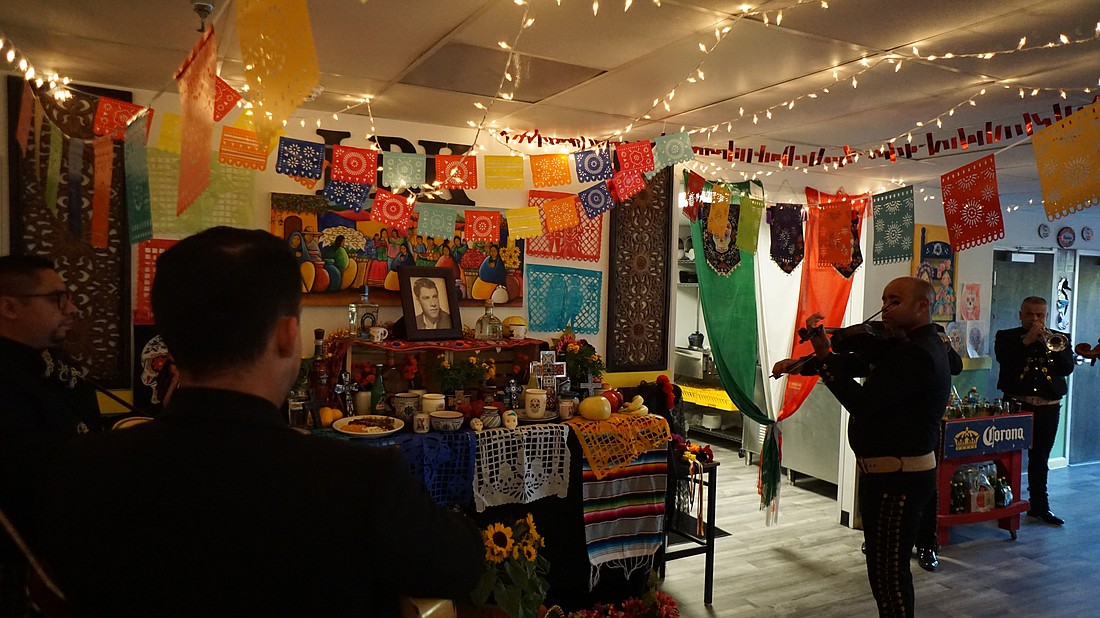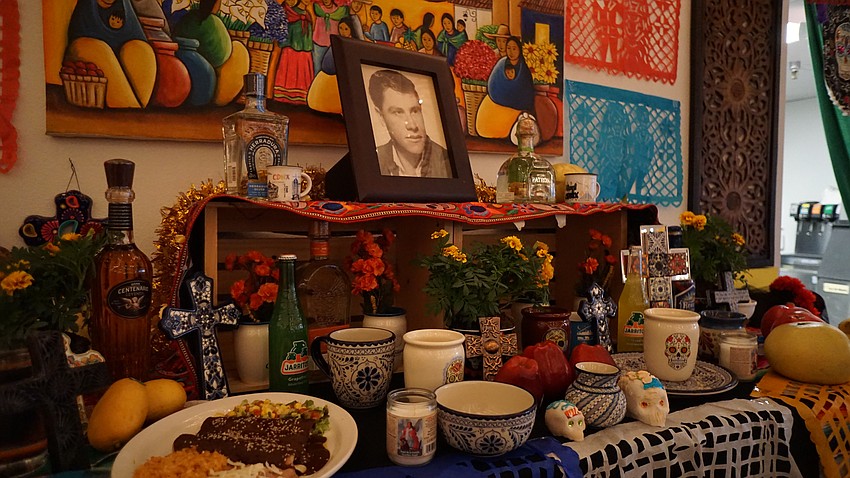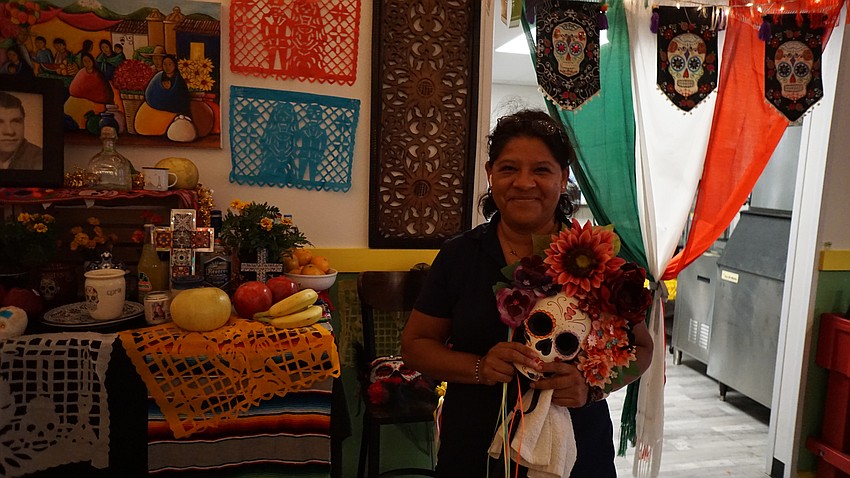- May 10, 2025
-
-
Loading

Loading

In the back of La Villa Mexican Grill stood a table, making an appearance for one night only. On it sat sugar skulls, Patrón tequila, a plate of enchiladas and a black and white portrait of a man.
As the mariachi band entered one of the restaurant’s side doors, owner Estela Villegas was busy taking orders and running sizzling skillets to hungry customers.
Around 5:30 p.m., the band, Mariachi Contemporáneo, lined up against one of the back walls near the kitchen.
One of the men tested his trumpet, another made sure his guitarrón was tuned. The instrument bears resemblance to a classical guitar with a thicker body.
The band was ready. But the musicians did not face the crowd for the first song.
Instead, they paid tribute to the colorful ofrenda, topped with the portrait of Villegas' father Arturo.
The ofrenda, or altar, is laid out for him on this night: Día de los Muertos.
The classical guitar and guitarrón spun a melody, each player precisely plucking the strings to start “La Llorona.” And then the powerful vocals by Jesus Rico began.
“No dejaré de quererte.”
“I won’t stop loving you.”
“La Llorona” is a traditional song associated with the traditional Mexican holiday, Day of the Dead. Though the song has many different versions, all tell the story of the folk spirit “La Llorona,” or the weeping woman.
Día de los Muertos, or Day of the Dead, is a two-day holiday honoring deceased relatives. Traditionally, it’s said that the souls of the dead return for the night, Nov. 1, to celebrate with relatives.

That’s why, on the ofrenda, families set out photos and items that the dead relatives enjoyed.
For Villegas, she cooked a fresh plate of enchiladas, her father’s favorite.
But until about four years ago, Villegas never really cared much about the holiday. She had had more distant relatives like grandparents die, but her father’s death was a blow.
“When it’s someone that close, you really, really feel it,” Villegas said.
Since then, Day of the Dead has held a deeper meaning for her.
She believes, through the altar, her father's soul comes to visit her. It makes her miss him a lot, she said. But it also gives her hope that one day she will see him again.
At 19 years old, Villegas left Mexico for the U.S. She originally started in the Tampa Bay area, moved to Texas for a while and tried a couple other areas before settling again in southwest Florida.
Now, she’s been in the U.S. for about 32 years.

Villegas and her family opened La Villa at 5610 Gulf of Mexico Drive in November 2022, a sister location to the original La Villa in Valrico. The group also has a food truck.
She always wanted a place by the beach, she said.
Twice a week, Villegas goes to the Plant City market and hand picks the produce she’ll use at her restaurants.
“The food we serve is not food that you can pick up at the store and put in the microwave,” Villegas said. “We cook everything here and everything is fresh.”
La Villa’s signature dishes aren’t the ones that have become stereotypical “Latin American” dishes like tacos. Instead, plates like the alambre steal the show: a skillet of steak, chicken, bacon, pork, peppers and onions topped with a heap of cheese.
The dishes and fresh produce are what sets the restaurant apart from the rest, Villegas said. That, and the weekly mariachi performances.
The group, Mariachi Contemporáneo, takes requests from customers, with a catalog ranging from classical music to covers of Johnny Cash’s “Ring of Fire.”
Although seasonal markets can be tough, Villegas said her regular customers make everything worth it.
“I love to serve people, I love to talk with people,” Villegas said. “In Mexico, hospitality is our thing.”